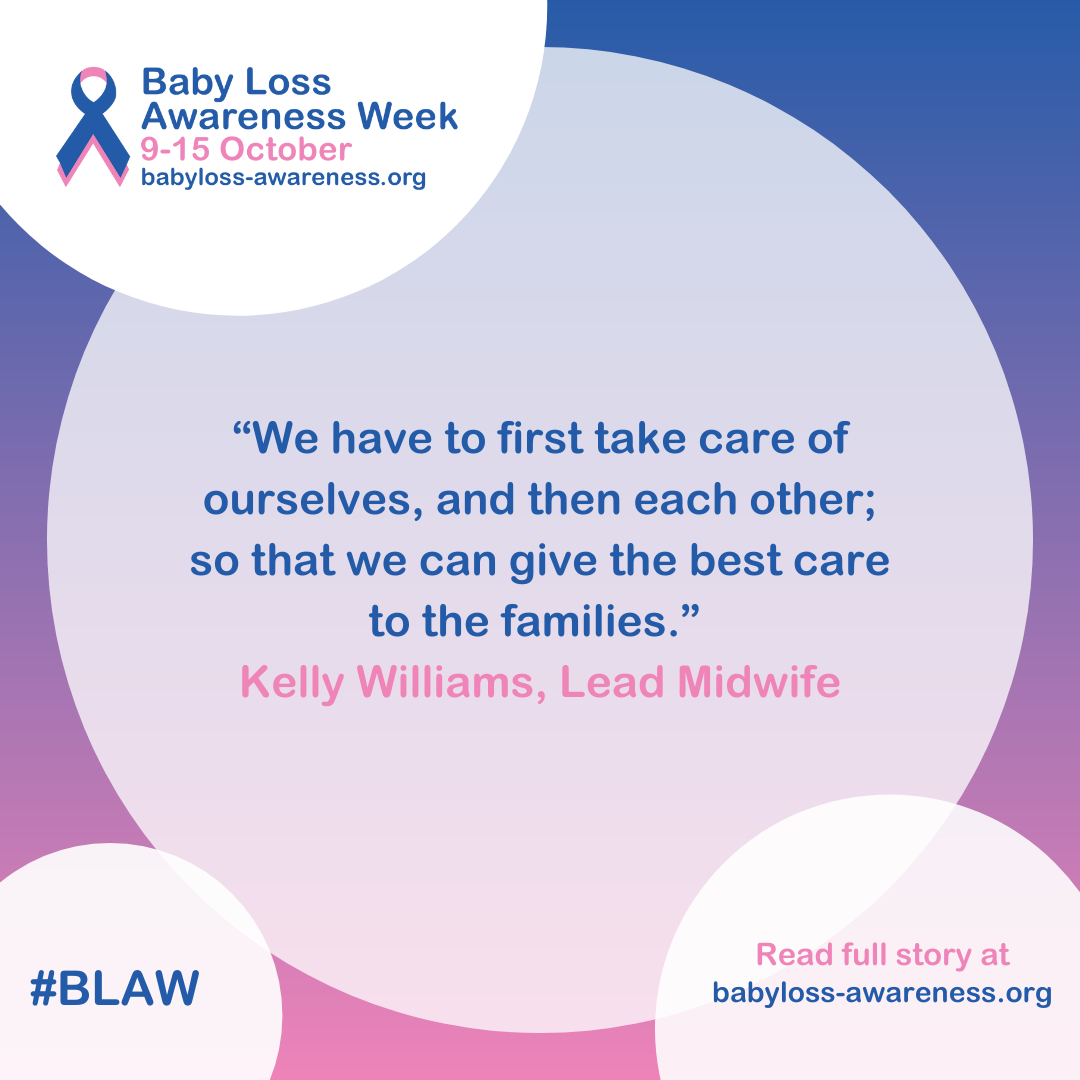
11 Oct What support is there for the health care professionals providing bereavement care?
Every year during baby loss awareness week, I reflect on the families I have cared for and how much they have taught me about love, life, and grief. However, this year I am also drawn to remembering the maternity staff I have worked with who have done the same. In my different roles as a midwife, I have witnessed colleagues who have supported and cared for bereaved families in such a generous and selfless way. These thoughts made me consider what support is there for the health care professionals providing bereavement care?
Most midwives, obstetricians, and maternity support workers enter their profession to facilitate the start of a new life and care for families at a joyous time. Unfortunately, every day in the UK, fourteen babies die before, during, or shortly after birth. This means that in addition to caring for parents at a happy time, maternity staff must be able to provide practical and emotional support to families during a bereavement. So, there needs to be mechanisms in place to take care of staff wellbeing for those working within a maternity setting, as well as for those in the wider hospital and community settings.
On reflection, when I started as a bereavement midwife, I didn’t recognise the toll that the job might have on my own mental wellbeing. I felt that the focus needed to be on the grieving families and my colleagues. It wasn’t until I went on annual leave after six months in the role, that I considered how sustainable not taking care of my own wellbeing was. Conversations with colleagues opened the topic of compassion fatigue; this is where a person’s ability to empathise is reduced from repeatedly supporting others through a traumatic event. I realised that to provide the right care to families, I needed to prioritise my own wellbeing as a bereavement midwife. When I changed jobs into a governance role (reviewing and improving practice after serious incidents), it remained vital to take care of my own wellbeing, as I regularly had challenging conversations with staff and patients about difficult situations.
Thinking about what was helpful in terms of my own wellbeing, it has been having a supportive network of colleagues who knew and understood the realities of working in a challenging role. Whether it was a quick phone call or a planned evening out; interacting with people who you can be honest with about hard times you face is necessary. There is also a place for supportive clinical supervision, but I’m aware this is not available to all maternity staff, and this is something that I’m passionate about embedding nationally. Taking care of my own mental health is an ongoing project, especially during the pandemic. Last year, I was matched to an amazing counsellor through the Frontline-19 service, which provides free and confidential therapy sessions. It’s also important to remember that SANDS is not solely for families, but also supports health care professionals affected by the death of a baby, and they are contactable by email or phone.
The best piece of advice I received is from my best friend when we were newly qualified midwives working together on the postnatal ward – “We have to first take care of ourselves, and then each other; so that we can give the best care to the families”. For everyone who is doing an amazing job working in maternity services, particularly with the current pressures, please look after yourself as it is essential to your wellbeing and in turn to provide good quality bereavement care.
By Kelly Williams, Lead Midwife and Sands Trustee
Follow Kelly on Twitter @genomicmidwife

Sorry, the comment form is closed at this time.